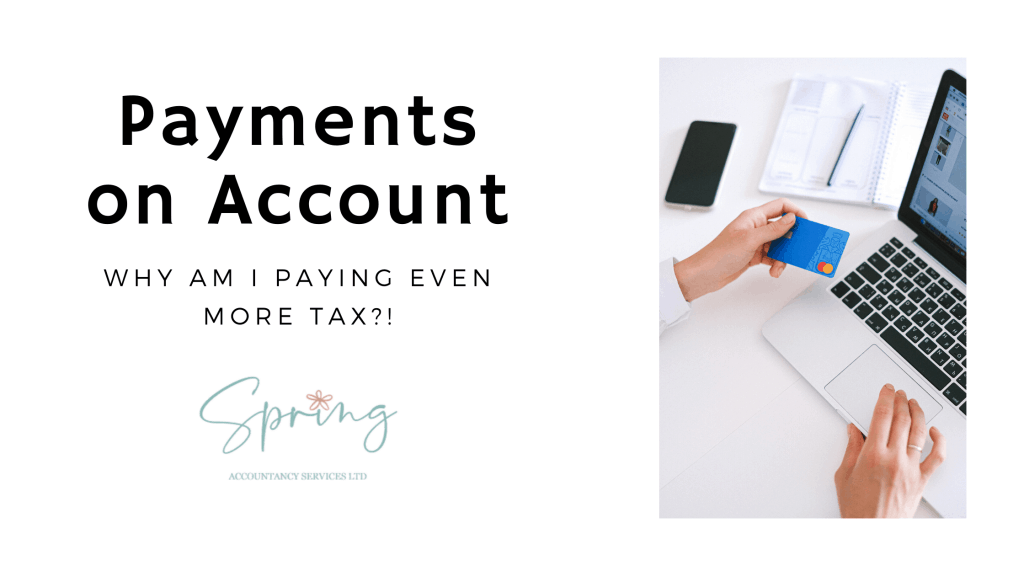Self-assessment payments on account
Woah! What are these payments on account?
Payments on account are advance payments towards your personal tax liability. There are two each year, due by 31 January and 31 July.
You won’t have to pay them if your personal tax liability is less than £1,000 or you pay more than 80% of your tax at source (for example through a payroll)
If it’s your first year having to pay self-assessment payments on accounts your tax due figure can be a bit of a shock at first glance.
We all look straight at that total tax figure first!
How are they calculated?
Each payment on account is 50% of your previous year’s tax liability.
Here’s an example:
It’s your first year and your 2018/19 tax liability is £2,000 and this is due by 31/1/2020. You also have the payment on account for the 2019/20 tax year of 50% which is £1,000. Therefore, the total due by 31/1/2020 is £3,000.
You will then have another payment on account due by 31/7/2020 of £1,000.
Your second year and the 2019/20 tax liability due is £3,000.
You have already paid £2,000 (2x£1,000) therefore £1,000 still due to pay, this is called the balancing payment.
Therefore, your tax payments due are as follows;
Balancing payment of £1,000 + payment on account for 21/22 £1,500 = £2,500 due by 31/1/2021
Due by 31/7/2021 payment on account for 21/22 £1,500
You have therefore already paid tax totaling £3,000 for the tax year 21/22
Capital gains tax liabilities are not included in the payments on account calculations these will be added to your balancing payment.
Reducing payments on account
If you know your next tax bill is going to be lower than last years you may be able to reduce your payments on account.
However, if you do reduce the payments on account and then underpay HMRC may charge you interest.
If you have overpaid, you will get a refund.
If you require any assistance with your tax returns, please contact me.

Pingback: New Tax year 2023/24 | Spring Accountancy